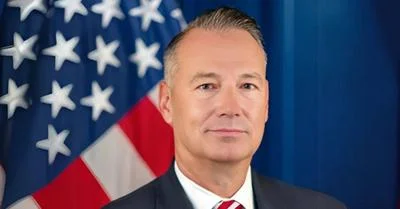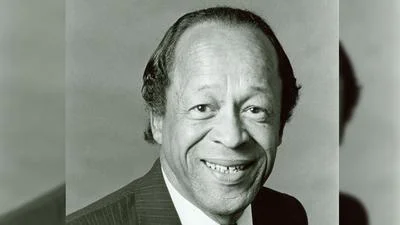The Metropolitan Water Reclamation District of Greater Chicago (MWRD) is considering forming an inspector general’s office, a move that Better Government Association (BGA) said it welcomes as long as the district does not employ half measures.
“The MWRD has about 2,000 employees and a budget of more than $1.2 billion,” BGA Policy Manager Rachel Leven wrote in a column for the Chicago Sun-Times. “It’s a government bigger than that of many cities and towns in Illinois. For an agency of this size and importance, setting up independent oversight should be a no-brainer.”
According to Leven, a recent meeting of the MWRD Board saw the group discuss creating an inspector general position for the first time. If the board were to proceed, Leven wrote, it would be a historic step and promote oversight and transparency that has been lacking at the district.

City of Chicago Inspector General Joseph Ferguson
| http://chicagoinspectorgeneral.org/
Leven highlighted several prominent cases demonstrating mismanagement, corruption and patronage at the MWRD, including scandalous assertions made by former MWRD Police Officer Dennis Lawler. According to a Sun-Times report, Lawler was talking to a newly hired police officer while working a midnight shift at the Stickney wastewater-treatment plant and the conversation was inadvertently broadcast over an Illinois State Police radio channel. State police recorded Lawler’s comments, including racial and sexist slurs.
Lawler also told the rookie that police officers regularly slept on the midnight shift, that there was a back room where district employees watched television and drank beer, and that he could assume everyone working for the district was politically connected. Lawler was immediately suspended without pay and fired a year and a half after the recording.
Leven also pointed to a lawsuit against the MWRD over the use of an alley near its headquarters, which cost taxpayers millions of dollars. In the midst of these issues, MWRD employees are earning some of the highest salaries for public employees in the state, at an average of nearly $100,000, according to a 2016 report from the BGA.
Against this backdrop, Leven argued that the district could use an inspector general’s office, but only if that office is properly armed to carry out its assigned duties.
“If the MWRD is going to create an inspector general’s office, it should be done right,” Leven wrote. “The inspector general must be independent, legally empowered and adequately funded.”
Leven noted that the role of inspectors general is not simply to inspect and identify misconduct. She noted the efforts of Chicago Inspector General Joseph Ferguson, whose office uncovered a year-long embezzlement scheme by a city employee in 2014. While the office’s work led to the worker's removal – and eventually to federal criminal charges – Ferguson’s office also helped the city adjust its systems to ensure that the city was no longer vulnerable to similar fraud.
Leven argued that through independence, the hypothetical MWRD inspector general’s continued employment would not be at the mercy of district leadership. With legal empowerment, he would be able to fully run investigations, including issuing subpoenas. Adequate funding would ensure the office had a strong staff and resources, he wrote.
“Without these three elements, the office will not have credibility with the public or its own employees,” Leven wrote. “…The Better Government Association encourages the MWRD’s board of commissioners to show the public that the district is committed to efficiency and accountability.”
.jpg)





 Alerts Sign-up
Alerts Sign-up